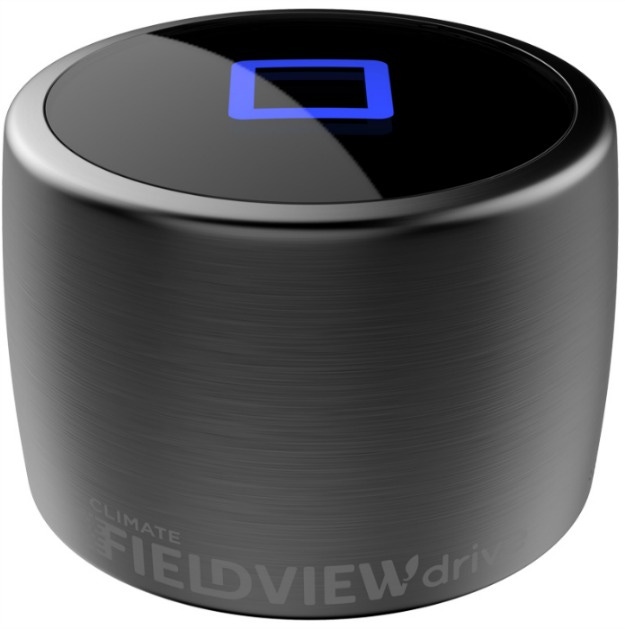January 28, 2016

Data analytics tools are hungry. They require a lot of data to crunch, because the more data, the more accurate the information and the more ways you can slice, dice, and analyze it into something that makes sense for the average user.
Technology is coming to the farm that will make collecting that data a seamless process. A small electronic device, called a data logger, can be plugged into your tractor or combine’s diagnostic port and mine all of the data that comes across a vehicle’s controller area network or Canbus. Any part of the machine with a sensor attached can be measured and logged along with its GPS location.
The technology has been used in other industries for years. For example, the automotive industry uses them to collect diagnostic trouble codes that a technician can read to improve servicing. The healthcare industry uses data loggers, too, to track vitals such as heart rate. Another example is in the airline industry, where a flight data recorder can be used to back-track performance issues.
Now, the same tools are being used in agriculture as companies want to improve the quality of their products and services for the farm.
The latest example comes from Climate Corporation, which recently launched the FieldView Drive, a device that connects to the tractor or combine controller area network (CAN) diagnostic port and uses Bluetooth technology to wirelessly map field data onto an iPad in real time.
States Climate Corp in a news release:
“The data is digitally displayed as a farmer passes through a field, enabling the farmer to easily understand hybrid performance by field, soil zone and population with side-by-side views of as-planted and yield data. And, those are just a few of the benefits.”
The device works with John Deere and Case IH planters and John Deere combines. The company plans to expand the capabilities of FieldView Drive in coming seasons.
“Because we believe significant yield advances and efficiencies can be gained by harnessing the power of data, our intent is to greatly expand the capabilities of FieldView Drive into more equipment brands and machine types to support key field activities and crops,” said Doug Sauder, senior director of product for The Climate Corporation. “We’re working to ensure farmers gain valuable insight from their data in the field.”
Climate Corporation’s new FieldView Drive data logger is made by the same company that designed the 640Drive, formerly known as 640 Labs, a data analytics and tech company that was purchased by Monsanto a few years ago. Data from their data logger was fed into advanced analytics software, which processes millions of data points and looks for outliers, shown as spikes, in the data that might indicate a problem.
640 Labs’ Patrick Dumstorff, whom we interviewed for a story about their 640Drive, said the data they collect is more detailed or “granular” than what you’d see on a conventional display monitor because more data points are being measured. Dumstorff explained that factories use similar software algorithms to detect a problem on an assembly line. Applied on the farm, the software can identify problems in a field.
“We don’t judge the data,” Dumstorff said. “We just present the facts and look for patterns that might explain any variation.”
To illustrate, he held up a chemical application map of an 80-acre field in Iowa. “As you can see, there are little red lines that show up exactly every 60 ft., Dumstorff says. “Such equal patterns are not found in Mother Nature, which would suggest a mechanical problem with the sprayer. Turns out one of the boom sections wasn’t working. All it would have taken was a wrench to solve the problem.”
More players enter the market
Other companies have come out with data loggers, too. For example, Agco has its device, also called a “dongle,” used to collect machinery information such as speed, RPM, acres covered, and maintenance data. Farmobile has an orange PUC that grabs similar types of information about a machine. FarmLogs’ device, called “FarmLogs Flow,” plugs into a combine’s Canbus to collect yield data. There are other examples, too.
Soon more companies than not will offer the same data collection devices or loggers, either as part of the new farm equipment you buy or as after-market product that you can buy yourself. And, theoretically, the sky is the limit in what these loggers will be able to measure. Take for instance a sensor on a planter that can measure soil moisture, or a sensor on a disk that can measure ground hardness. When placed on equipment, these data loggers make data collection automatic, and ultimately, will signal the equipment to adjust in real-time.
Once you have the logger, all you need is the software to digest and use advanced analytics to predict yield outcomes. That’s where Monsanto’s FieldView and other companies’ data services come in. Companies can use the data to fuel their advanced crop modeling tools that can predict a yield response to certain variables such as weather, nutrient levels, soil properties, and pests. Farmers, in turn, can use the data to make more informed operating decisions such as what seed to plant, what pesticide to buy, or what type of equipment might be needed.
The bottom line is, you’ve got to feed the beast, which is the modeling software. And now you have the technology to do it.
About the Author(s)
You May Also Like




